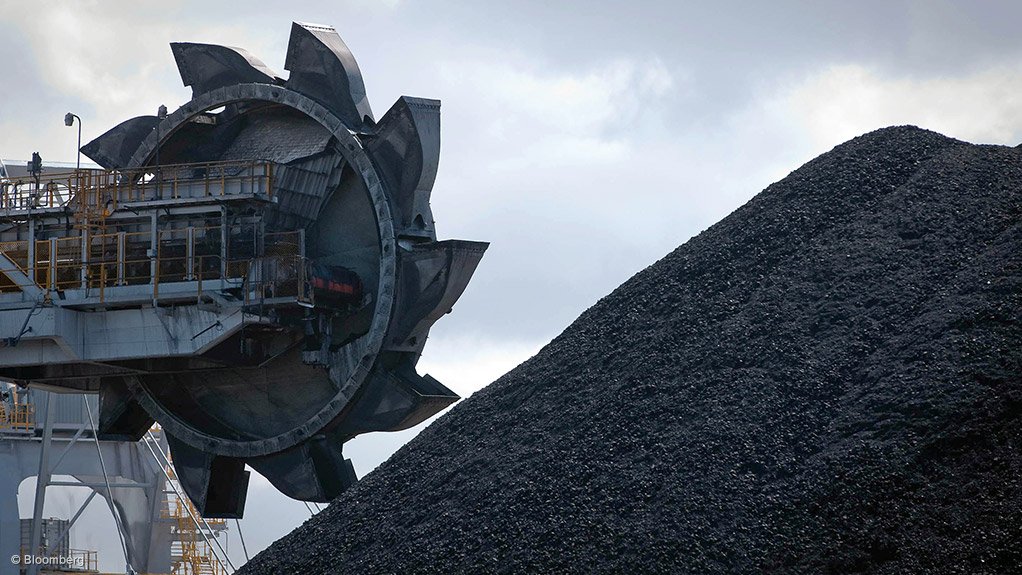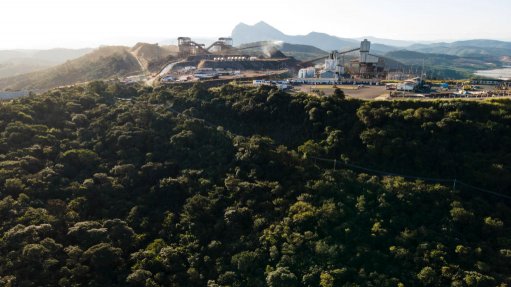Peabody urges advanced coal use in energy poverty, emissions fight
TORONTO (miningweekly.com) – In light of the twentieth United Nations (UN) Climate Conference held this week in New York, US coal producer Peabody Energy on Friday urged the greater use of advanced coal to fight energy inequality and improved emissions.
The NYSE-listed company cited the UN’s Millennium Goals developed a decade ago, which called for a rapid halving of extreme global poverty by 2015. About 3.5-billion people currently lived without adequate energy access, which represented half the world's population.
Billions in South Asia and sub-Saharan Africa spent their days foraging for wood or biomass for fuel to cook meals or heat dwellings, which, in turn, resulted in health and fire risks.
Peabody pointed out that household air pollution from indoor fires was estimated to be the fourth-leading cause of death in the world.
"It's time we recognise energy poverty as the most serious crisis we face and reject climate alarmism that stalls solutions for energy access that would improve health, longevity and quality of life for tens of millions of citizens around the world. The best way to reduce carbon and further human development is to accelerate deployment of today's advanced coal technologies that provide continued environmental improvement,” Peabody chairperson and CEO Gregory Boyce argued in a statement.
He added that reasonable people could disagree on the urgency of addressing concerns about carbon, but that no one could question the crisis the world faced when more than four-million people died each year from indoor air pollution as a result of energy poverty.
Boyce said the ultimate human suffering from energy poverty extended to vaccines that were not kept cold, hospitals that lacked proper electricity, food that spoiled from a lack of refrigeration, water that was not purified and the effects of poor sanitation.
"If we are really serious about helping the impoverished, then we should be supporting activities to provide abundant low-cost energy for the billions in the world who lack it. As the world's policymakers consider long-term energy actions, it is encouraging that more nations are realising the harm done to people owing to poor carbon policies, demonstrating important lessons for today's US and global leaders.”
Boyce observed that choices of fuels and policies mattered as witnessed by actions globally. For instance, Australia repealed its carbon tax, which the Prime Minister called a "useless, destructive tax, which damaged jobs, hurt families' cost of living and didn't actually help the environment".
Japan had also stepped up support for coal-fuelled power plants, both domestically and overseas, calling for greater use of advanced coal technology that reduced carbon dioxide emissions.
In India, the new Prime Minister pledged to make electricity available to every household by 2022, while China, as the world's largest coal user, was deploying technology to reduce emissions.
Boyce further noted that Canada was reducing emissions without a penalising carbon tax, while Europe's renewable strategy was being pared back as the continent was threatened by Russia's energy security challenge.
"At a time when the world is bringing on line one new 500 MW coal plant every three days, calls to divest from fossil fuels from a tiny fraction of global investors are misguided and antipoor. All investors should be calling for more advanced coal use to alleviate energy poverty and drive major environmental gains,” Boyce said.
IMPROVED LIFE QUALITY
Peabody stated that fossil fuels helped people live longer and better, and that repeated studies had demonstrated coal was the backbone of the global economy, with a direct correlation between greater coal use and greater gross domestic product.
The benefits of fossil fuel energy to society outweighed the social costs of carbon by a magnitude of 50 to 500 times, according to a study titled ‘The Social Costs of Carbon? No, the Social Benefits of Carbon,’ which was prepared by Management Information Systems.
"We have deep concerns over flawed electricity policies designed to eliminate clean and efficient electricity from coal, which supplies over 40% of US power and has increasingly lower emissions. Studies clearly show these policies, if enacted, would only cause price increases with greater reliability risks and no substantive improvement under climate theory. These policies destroy manufacturing jobs, increase energy poverty, hurt real people and ruin hope for a better life,” Boyce stressed.
Coal is expected to fuel more energy growth than any other fuel over the next 20 years based on the International Energy Agency's current policy scenario. More than 70-million people were expected to be added to cities each year through 2020 as populations continued to fight poverty by migrating to urban centres.
Peabody argued that coal was the least expensive and most reliable major form of electricity generation to meet these rising energy needs. The World Bank had also said coal would be critical in helping Africa meet power demands.
Coal had been the world's fastest-growing major fuel for more than a decade, and was expected to overtake oil as the world's largest energy source in coming years.
Comments
Press Office
Announcements
What's On
Subscribe to improve your user experience...
Option 1 (equivalent of R125 a month):
Receive a weekly copy of Creamer Media's Engineering News & Mining Weekly magazine
(print copy for those in South Africa and e-magazine for those outside of South Africa)
Receive daily email newsletters
Access to full search results
Access archive of magazine back copies
Access to Projects in Progress
Access to ONE Research Report of your choice in PDF format
Option 2 (equivalent of R375 a month):
All benefits from Option 1
PLUS
Access to Creamer Media's Research Channel Africa for ALL Research Reports, in PDF format, on various industrial and mining sectors
including Electricity; Water; Energy Transition; Hydrogen; Roads, Rail and Ports; Coal; Gold; Platinum; Battery Metals; etc.
Already a subscriber?
Forgotten your password?
Receive weekly copy of Creamer Media's Engineering News & Mining Weekly magazine (print copy for those in South Africa and e-magazine for those outside of South Africa)
➕
Recieve daily email newsletters
➕
Access to full search results
➕
Access archive of magazine back copies
➕
Access to Projects in Progress
➕
Access to ONE Research Report of your choice in PDF format
RESEARCH CHANNEL AFRICA
R4500 (equivalent of R375 a month)
SUBSCRIBEAll benefits from Option 1
➕
Access to Creamer Media's Research Channel Africa for ALL Research Reports on various industrial and mining sectors, in PDF format, including on:
Electricity
➕
Water
➕
Energy Transition
➕
Hydrogen
➕
Roads, Rail and Ports
➕
Coal
➕
Gold
➕
Platinum
➕
Battery Metals
➕
etc.
Receive all benefits from Option 1 or Option 2 delivered to numerous people at your company
➕
Multiple User names and Passwords for simultaneous log-ins
➕
Intranet integration access to all in your organisation





















